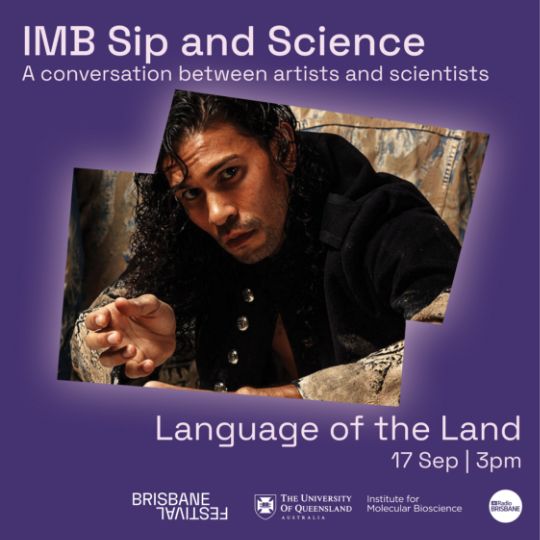Do you believe in fate?
 The idea of a higher power shaping our lives and guiding us towards an inevitable outcome is a tempting one for some people. Whether you believe your destiny is written in your genes or the stars, more than half of you said you believed in fate – a predetermined course of events beyond our control.
The idea of a higher power shaping our lives and guiding us towards an inevitable outcome is a tempting one for some people. Whether you believe your destiny is written in your genes or the stars, more than half of you said you believed in fate – a predetermined course of events beyond our control.
While they were in the minority, there was still a sizeable portion of people who felt their future is in their own hands, with 40 per cent not believing in fate.
Yes – 60%
No – 40%
Do you think Nature or Nurture plays a stronger role in shaping personality?
 Nature versus nurture is an ongoing debate and there’s no simple answer. As Associate Professor Loic Yengo says, “The question is not whether a trait is determined by our genes or our environment… but rather the balance between the two.” In the case of personality, nearly half our respondents thought nature and nurture – our genes and our environment – play an equal role in shaping our patterns of thoughts, emotions and behaviours; while nearly a third thought the environment in which we are raised and live is solely responsible, with no contribution from our genes. 17 per cent thought there wasn’t one answer and it depends on other factors, while only six per cent of respondents thought our personality was purely determined by genes, with no influence from our environment.
Nature versus nurture is an ongoing debate and there’s no simple answer. As Associate Professor Loic Yengo says, “The question is not whether a trait is determined by our genes or our environment… but rather the balance between the two.” In the case of personality, nearly half our respondents thought nature and nurture – our genes and our environment – play an equal role in shaping our patterns of thoughts, emotions and behaviours; while nearly a third thought the environment in which we are raised and live is solely responsible, with no contribution from our genes. 17 per cent thought there wasn’t one answer and it depends on other factors, while only six per cent of respondents thought our personality was purely determined by genes, with no influence from our environment.
They play an equal role – 46%
Nurture – 30%
It depends – 17%
Nature – 6%
If you were at risk of an incurable disease, would you want to know?
 We have more information about ourselves available than ever before, thanks to the increasing speed, affordability and accessibility of genome analysis technology. But do we want to know everything our genome can reveal? The decision to learn whether we are at risk of an incurable disease is a complex and emotional one – the lack of a cure means the end is inevitable and knowing your genetic status also impacts your family members. But despite this, most of our respondents – more than three-quarters – said they would like to know. Whether it’s extra impetus to work through the bucket list, to enable better planning, or just plain old curiosity, the people of Brisbane would rather know the score.
We have more information about ourselves available than ever before, thanks to the increasing speed, affordability and accessibility of genome analysis technology. But do we want to know everything our genome can reveal? The decision to learn whether we are at risk of an incurable disease is a complex and emotional one – the lack of a cure means the end is inevitable and knowing your genetic status also impacts your family members. But despite this, most of our respondents – more than three-quarters – said they would like to know. Whether it’s extra impetus to work through the bucket list, to enable better planning, or just plain old curiosity, the people of Brisbane would rather know the score.
At least, most would. Ten per cent of respondents said they’d rather be left in the dark. The potential for distress with no benefit in the form of a cure meant these respondents weren't prepared for that sword hanging over their head. 13 per cent acknowledged that it’s one thing to answer a poll, another entirely to be in that position for real, opting to answer ‘I’m not sure what I would do.’
Yes – 77%
I’m not sure what I would do – 13%
No – 10%
When you choose a partner, do you choose someone who is similar to you?
 Despite the saying ‘opposites attract’, Associate Professor Loic Yengo found most people choose a partner who is like them, even if those similarities are not immediately obvious. We were curious whether the people of Brisbane agreed with the data – and it turns out, you do.
Despite the saying ‘opposites attract’, Associate Professor Loic Yengo found most people choose a partner who is like them, even if those similarities are not immediately obvious. We were curious whether the people of Brisbane agreed with the data – and it turns out, you do.
More than half of respondents to our poll concurred that birds of a feather flock together, admitting they do choose a similar partner. A quarter of people still maintain opposites attract, perhaps striving for someone who is complementary rather than comparable, while thirteen per cent preferred the independence of going it alone rather than having a partner – whether similar or opposite – at all.
Yes, birds of a feather flock together – 63%
No, opposites attract – 24%
The single life is for me – 13%
 Our next poll is live!
Our next poll is live!
This week we are focussing on our links to the land. Tell us what you think and go into the draw to win a Gold Coast getaway.
 Register for Sip and Science | Language of the Land
Register for Sip and Science | Language of the Land
Join Festival artist, Daniel Riley and IMB researcher, Dr Zeinab Khalil in conversation as they explore the depth of knowledge that lies within the land.



